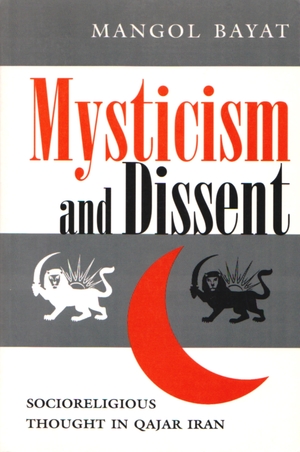"This is a fresh and welcome attempt to synthesize a growing literature on nonconformist Shiite Muslim thought during the course of the 19th century. . . . [Bayat's] contribution lies in the ordering of a mass of repetitive and confusing views and placing them in some meaningful comprehensive perspective. Her approach to the subject is methodical, her aims well defined, and language of presentation facile."—Choice
"By tracing the dissident elements of Shiism through traditional dissent, and particularly through the radicalization of early Shaikhism and its socialization in Karmani Shaikhism, then through the politization of Babism to its ultimate secularization, Bayat lays the groundwork for the triumph of secularization under the Pahlavis. . . . It [the book] does . . . provide a perfect backdrop for an understanding of the socioreligious chemistry of the revolution."—The American Historical Review
"Highly original and the scholarship is very sound. . . . Of real importance not just to historians of Islam and of nineteenth-century Iran, but also to scholars and students of contemporary Iran."—Ervand Abrahamian
About the Author
Mangol Bayat is an independent scholar. She has taught at the University of Bonn (Germany), Harvard University, The University of Iowa, MIT, and the University of Shiraz (Iran). She is author of Iran's First Revolution, 1905-1909.




